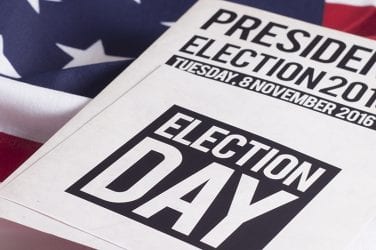*Note: Some names and identifying details in this article have been changed to protect the privacy of individuals
One of my very first best friends was a girl named Danielle*. When I was little, I remember being so jealous of her hair. She had a head full of braids, ending with beautiful beads that clicked together as she walked.
One day I asked my mom: “Why can’t my hair look like Danielle’s?”
She said: “It’s just not how your hair is, that’s all.”
This was the first of a series of comparison questions I asked my mom:
“Why can’t I wear dresses every day like Savanna*?”
“Why can’t I bring my American Girl dolls into church, like that girl?”
“Why are the boys mean to me and not her?”
“Why am I not skinny like the other girls?”
I must say I envied plenty as a child, but it all began with my best friend and her glorious braids.
As a little kid, I didn’t think about Danielle’s race at all. I won’t say that I didn’t see color. I saw color; I just saw her first. She was my best friend before she was anything else. Finding friends in grade school was hard, and I considered myself lucky to have her.
She welcomed me into her family, and she never forgot to invite me somewhere. I like to think I did the same for her.
The first time we ever talked about race was also the first time I messed up.
I asked Danielle if she liked Sam*. As in, ”like-like.” Danielle asked me, “Why? Because he’s the only other black kid?” I mean yes, that’s what I had assumed. All the boys I liked had dark hair and dark eyes, like me, and I guess I thought everyone liked people that looked the most like them.
Unfortunately, my logic hasn’t always been that innocent.
It started in high school when my white friends and I whispered questions like, “Why do we have to learn about slavery every year?” and “Why do we have to read ‘A Raisin In The Sun?’ Aren’t there any books about white people?”
It progressed to getting worked up about welfare and other “handouts.” It exploded when Obama ran for president.
It flowed easily through comments like, “If whites had a channel for whites like BET, that would be racist.” Or, “I’ll need serious luck getting into college competing against all those affirmative action students.”
It was present in areas of my life not occupied by my black friends, as though they existed separately from one another. I behaved like this for too long; I claimed to care about my black friends without ever trying to understand their experiences as black people. I laughed with them, ate with them, and turned my back on them.
In college, I became close with two of my freshman-year roommates, Nura* and Alicia*. Nura was Nigerian and Alicia was from outside of Philly. We were inseparable.
One day, Nura was stopped on her walk home by a girl we were all acquaintances with, Cynthia*. She asked Nura, “Why are you only friends with white people; Why don’t you hang out with us?” Nura was livid; I was livid. I couldn’t believe that she would say something like that.
Why did it matter? Years later, after learning a thing or two, I realized that it does matter.
I’ll compare it to what it would be like for me if I didn’t have female friends. Sure straight male friends have a lot to offer, but they don’t experience life the way women do. They don’t get catcalled, they don’t suffer a perpetual fear of sexual assault, they don’t experience the love that occurs in the woman’s bathroom at a bar, or how our body issues dominate conversations. They don’t get period jokes the same way, sometimes not even at all. They don’t always know how to talk about women’s rights without feeling personally threatened. They sometimes say things that aren’t meant to be harmful like, “You’re just one of the guys..” – even though that implies that there is something ‘uncool’ about being a girl. They just don’t get it the same way a woman gets it.
Now, granted, some women will disagree and say that women are catty and how men are better friends, but female friendship is beautiful, and it encourages us to be better, to do better, and to fight harder.
The same rule applies to black friendships. There is a certain bond that is made with those that experience life similarly to the way you do. I love my black friends, but I can’t offer them that.
But, I can offer more. Which is what I have decided to do.
I believe that it is extremely difficult to talk about race. Honestly, I’d argue that it’s difficult to even think about race as a white person because it barely impacts our lives. There was a time, not too long ago, when I got offended by the Black Girls Rock Awards or the “Black Lives Matter” slogan. I’m not talking, ranting-Facebook-post offended, just like “I don’t know how I feel about this” offended.
Then, I read this article called “I, Racist”. It discussed how white people view themselves differently than black people. Since society interacts with black people as black people, there is a community-focused identity that just doesn’t exist in the white community. The author explains that white people see themselves as individuals, so we tend to take personal offense by discussions of racism because “well I don’t do that,” “I don’t think that way,” or “I don’t say those things.” We take it as an attack on our character, and then we get defensive. So conducive conversations about race stop before they start.
This article resonated with me because the author articulated my normal reaction to racial issues. One article completely changed the way I approach the ongoing dialogue on race. It made me take a step back and ask: Just because I don’t think I act like a racist, does that mean I should silence those that are impacted by racism?
As for saying things like “all lives matter,” – well, that should be its own sentence. It should not be the response to “black lives matter.” It should not be used to dismiss the Black Lives Matter movement or what they’re fighting for. In my opinion, when someone says “all lives matter,” they are hearing, but they aren’t really listening. Saying black lives matter isn’t saying that white lives don’t and it’s not an attack on your character. There’s a human life, an experience, and a story behind every single person involved in the movement; you can’t tell people that their human experience isn’t real. You can’t tell them it doesn’t exist so that you can keep pretending it doesn’t.
It’s uncomfortable to talk about race, to acknowledge that there is a problem; to admit that we haven’t come as far as we’d like to think. As a white person, I have often felt like it isn’t my place to say anything. Mostly, I have felt this way out of fear. I’ve been silent, I’ve ignored the facts, and I’ve turned my back, but in light of recent events, and although it’s way overdue, silence is not an option anymore.
This isn’t me dominating the conversation, and this isn’t me claiming to know things that I don’t. This is me saying that I’m here, I’m listening, and I’m standing in solidarity. This is me making the little girl I once was proud; this is me offering my friends more.








Show Comments
Steven G. Williams
that was an excellent article and expressing how you were before and how you are now shows growth which is key to being a fully functioning adult.
Josh Towel-zee
Great article and excellent message you were able to get across. I can sympathize with the way you felt at various times and I think your story should inspire more to speak out
Comments are closed.